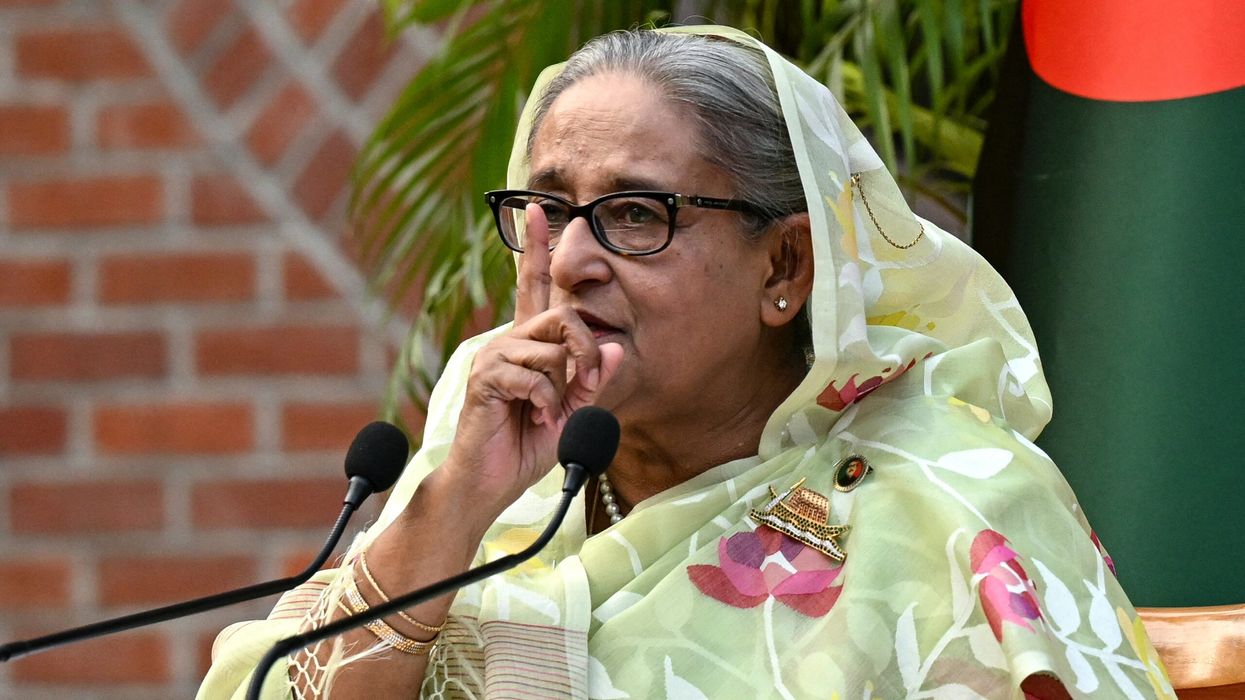BANGLADESH’s Election Commission has suspended the registration of the Awami League, the party led by former prime minister Sheikh Hasina, effectively disqualifying it from contesting upcoming national elections.
The decision followed a government order banning all activities of the Awami League under the Anti-Terrorism Act. The interim government, led by Nobel laureate Muhammad Yunus, issued the ban after days of protests.
Authorities cited national security concerns and an ongoing war crimes investigation against the party’s top leaders over the deaths of hundreds of protesters.
“With the home ministry’s ban on all activities of the Awami League and its affiliated organisations, the Election Commission has decided to suspend the party’s registration,” Election Commission Secretary Akhtar Ahmed told reporters late on Monday.
Under Bangladesh’s electoral laws, a party must be registered with the Election Commission to take part in national polls. The suspension prevents the Awami League from contesting elections unless the ban is lifted and its registration reinstated.
The Election Commission has also barred the party and its affiliates from any political activity. This includes media or online appearances, publications, processions, rallies, or conferences, until the International Crimes Tribunal completes its investigation.
Hasina won a fourth consecutive term in 2024. The election was boycotted by the main opposition, whose leaders were either jailed or in exile. She has been credited with economic progress, but also faced allegations of human rights abuses and crackdowns on dissent.
Protests escalated in recent months, leading to Hasina fleeing to India in August 2024. Yunus took over as head of the interim government.
Yunus has said he does not intend to run in elections and that national polls may be delayed until 2026. He has promised reforms before any vote.
India expressed concern on Tuesday over the ban on the Awami League and the political situation in Bangladesh.
“We strongly support the early holding of free, fair and inclusive elections in Bangladesh,” Indian Foreign Ministry spokesperson Randhir Jaiswal said at a media briefing.
Former prime minister Khaleda Zia’s Bangladesh Nationalist Party has also called for early elections and a return to democratic rule.
The newly formed National Citizen Party, led by students from the protest movement that brought down Hasina’s government, has demanded that polls be held only after reforms.
The unrest began in July with student protests against public sector job quotas. It later turned into one of the most violent political periods since Bangladesh’s independence in 1971.
The Awami League has faced increasing criticism in recent years over allegations of authoritarianism, corruption, and rights violations during Hasina’s leadership.
(With inputs from agencies)





